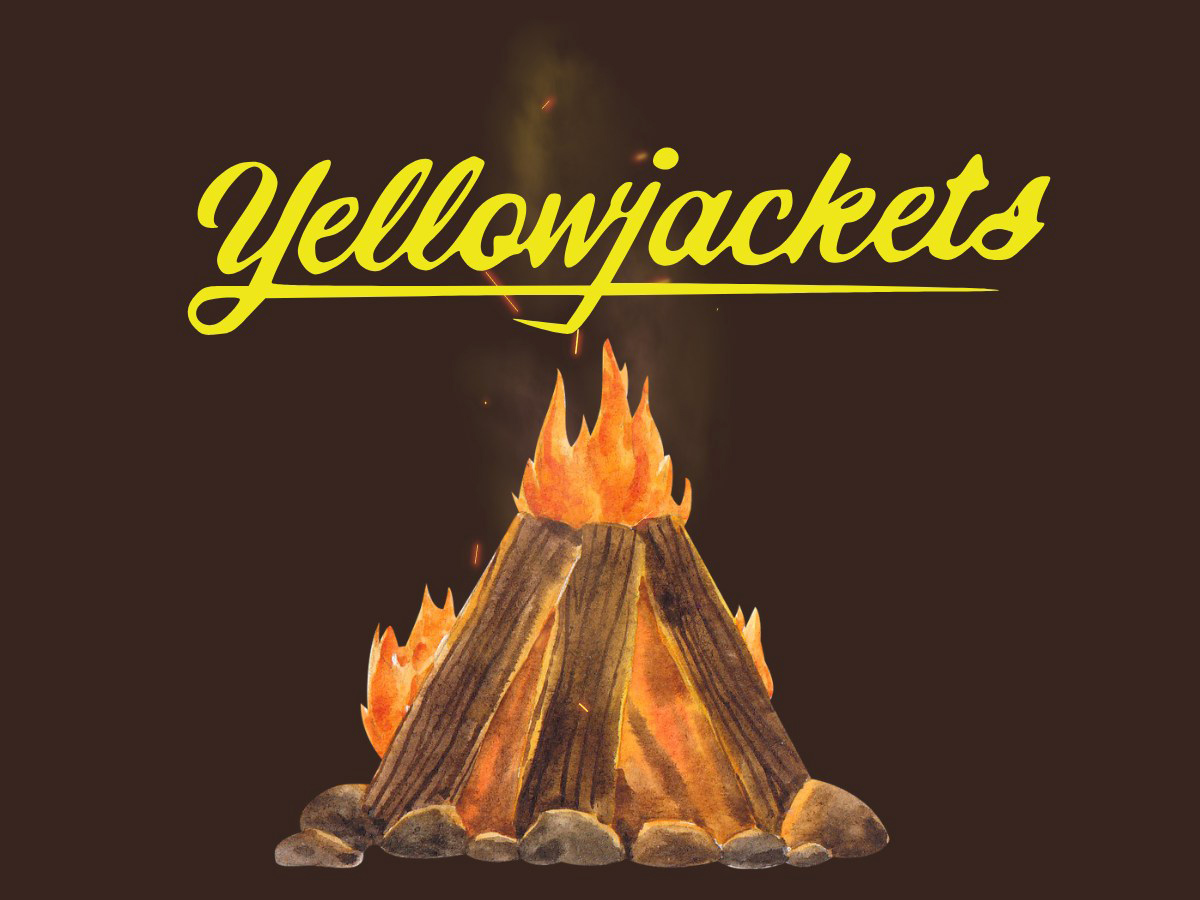August 2021. I’m standing at my first concert since 2019 at Target Field in Minneapolis. 30,000+ people are with me, watching live music unfold for the first time in a long time. The Hella Mega Tour, featuring Green Day, Fall Out Boy and Weezer, was on its last act of the night. Billie Joe Armstrong, the lead singer and guitarist of Green Day, was enthusiastically looking for someone to join him on stage to play guitar in a cover of Operation Ivy’s “Knowledge.” He absolutely slayed it — my brother and I remarked that the experience that the chosen guy had was something he’d talk about for the rest of his life.
Fast forward to 2023, and Green Day is playing on Dick Clark’s New Year’s Rockin’ Eve, celebrating 30 years of their smash 1994 album “Dookie” as well as their 2024 album “Saviors.” While playing their 2004 hit “American Idiot,” Armstrong changed the lyrics from “I’m not a part of a redneck agenda” to “I’m not a part of a MAGA agenda.”
Naturally, X (formerly Twitter) and other social media platforms exploded. Pro-Trump camps were extremely upset, whereas more left-leaning groups were explaining that he was doing something any punk rocker would do: rage against the system.
But what does it mean to be a punk rocker in 2024 when the system seems to be raging with you?
Punk rock began in the 1970s with bands such as The Clash, Ramones and Sex Pistols. The entire idea behind punk rock was to be music for outsiders, fighting against a system of disenfranchisement that, generally, was perpetuated by more conservative politicians and pundits. Punk took on fascism, corporations, the military-industrial complex and inequality. Above all else, it took on the “establishment” — long-time and long-running ideas that were perceived to be damaging many people’s lives. The idea of “you can’t do what you tell me,” and in some cases, anarchism, was incorporated into the fast-paced music that punk championed.
Today these issues are still pervasive. But the “establishment” appears to have switched where left-leaning groups are in power and, ergo, punk rock is no longer fighting the establishment. It’s part of it. By power, I mean having the ability to publicly affect social discourse, corporate norms and, in some cases, law.
Five Times August, a right-leaning country artist, recently published a song called “Ain’t No Rock and Roll.” The song accuses several artists for siding with and promoting Big Pharma and insulting or alienating those who didn’t get the COVID-19 vaccine. Groups included in the video were Green Day, Queen, Bruce Springsteen, KISS, Rage Against the Machine, Foo Fighters and many, many more. Five Times August’s accusation was that these same “rock and roll rebels” were now just mouthpieces for the corporations and government narratives that they once hated.
In a similar vein, many of those opposed to Donald Trump claim to be part of the “resistance.” Conservative satire publication, “The Babylon Bee,” poked fun at this idea with an article titled “Man Who Agrees With The Media, Universities, Corporations, And Hollywood Thinks He’s Part Of The Resistance.” It’s true that many prominent media outlets and universities tend to be, at the very least, left-leaning, with some exceptions such as Fox News and Hillsdale College. Harvard University was given an “abysmal” rating on its environment of free speech. In other words, the “resistance” may be resisting Donald Trump, but it’s not as niche and rebellious as they think it might be.
Corporations have been promoting liberal ideas such as diversity, equity and inclusion. Censorship and alienation have become more and more common; according to a recent study by The Cato Institute, 77% of Republicans are afraid to voice their opinions compared to 52% of their Democratic counterparts. The same study found that 50% of those who identified as “strong liberals” say it’s okay to fire executives who personally donated to President Trump’s reelection campaign.
On Reddit, a meme went viral for portraying a tattoo-clad punk pointing to a sign that says, “You can’t be Punk and also be: racist, sexist, homophobic or transphobic. It’s impossible!” One presumably conservative Facebook page called “Liberty Memes” parodied this post and photoshopped the sign: “You can’t be Punk and also be: the dominant culture taught in schools, paraded by corporations, peddled by Hollywood and protected by social media companies. It’s impossible!” A comment under this post states, “Yesterday’s radicals are today’s establishment.”
While it is true that punk admirably was and is a culture of inclusivity, inclusivity has become the mainstream, embraced by corporations, major sects of government and educational institutions. Whether inclusivity is being executed appropriately depends on who you ask and who has caused a major storm in the so-called “culture war.”
I have always been a fan of punk rock, and I imagine I always will be. I think there is still value in questioning the establishment, no matter which ideology controls it. But punk rockers need to ask themselves who is the establishment? And whose side are they really on? Do they accept government and social narratives? Or are they going to pick and choose which part of the establishment to obey based on their political leanings and, more importantly, what’s socially popular?
When “American Idiot” released in 2004, Green Day’s third track was called “Holiday.” Many of those reading this article may have heard it — and it’s one of my personal favorite Green Day songs. The song is an anti-war on terror anthem. According to Pew Research, two years before the album was released, 92% of Americans were supportive of military intervention to prevent terrorism. Therefore, releasing this song was truly punk because they were going up against a socially supported government decision. But now…how can you be punk when the establishment — government, media, corporations or otherwise — goes right along with what you’re saying?








Mike • Apr 10, 2025 at 4:10 am
Wow this aged like sour milk, looking back at this article a bit over a year later in April 2025. Trump is now our President again, all the tech CEOs lined up behind him at his inauguration, once pro-Democracy republicans now praising Putin, legal residents getting picked up off the street by ICE, corporations and universities rolling back DEI because they’re worried it is illegal, the mechanisms that let to one of the greatest scientific mobilizations (that gave us operation warp speed) that saved millions of lives being dismantled…
What author Chris Veninga fails to grasp here, is that punk is a wide and varied leftist movement that regularly gets co-opted by the right wing (hence the Nazi punks of the 80s, and some of these MAGA types now). Don’t confuse “alternative” with punk here, there’s a big difference.
And sure, various punks may sellout (Green Day, famously) or support a utilitarian agenda (i.e vote for the leftists who can win to stave off fascism but still supporting further left ideologies), but even in these instances what punk music and subculture is and has always been about is supporting the marginalized by fighting against things like racism, sexism, homophobia, colonialism, nationalism, capitalist races to the bottom. Even Green Day gets most of that right (except the capitalism part). Punk isn’t anti-institution a it’s been portrayed here, “mainly” about being anti-establishment, or just defined by being outsiders. That may be why you liked it as a kid. Punk _is seen as_ anti establishment or outsider because it is showing its teeth (through fashion, art, music, belief systems, books) to those hateful policies and ideologies that are embedded in society.
Whether it’s during the times of Reagan, Clinton, Bush, Obama, or Trump—punks will be anywhere and everywhere they can be to fight the aforementioned hate. Right now, Trump, Elon Musk, the Republican Party—they’re pushing racist, homophobic, transphobic, sexist, oligarchical policies as we speak. Many punks will gladly be strange bedfellows with any party of the left, the democrats currently, who are fighting those things. But many will also will be far further to the left, socialists and anarcho-syndicalists—like many of the first punk bands that were not mentioned in the article. The MC5, The New York Dolls, Crass, The Dead Kennedy’s, MDC, the list is endless.
The politics of punk in 2024 and now in 2025 are the same they’ve always been.